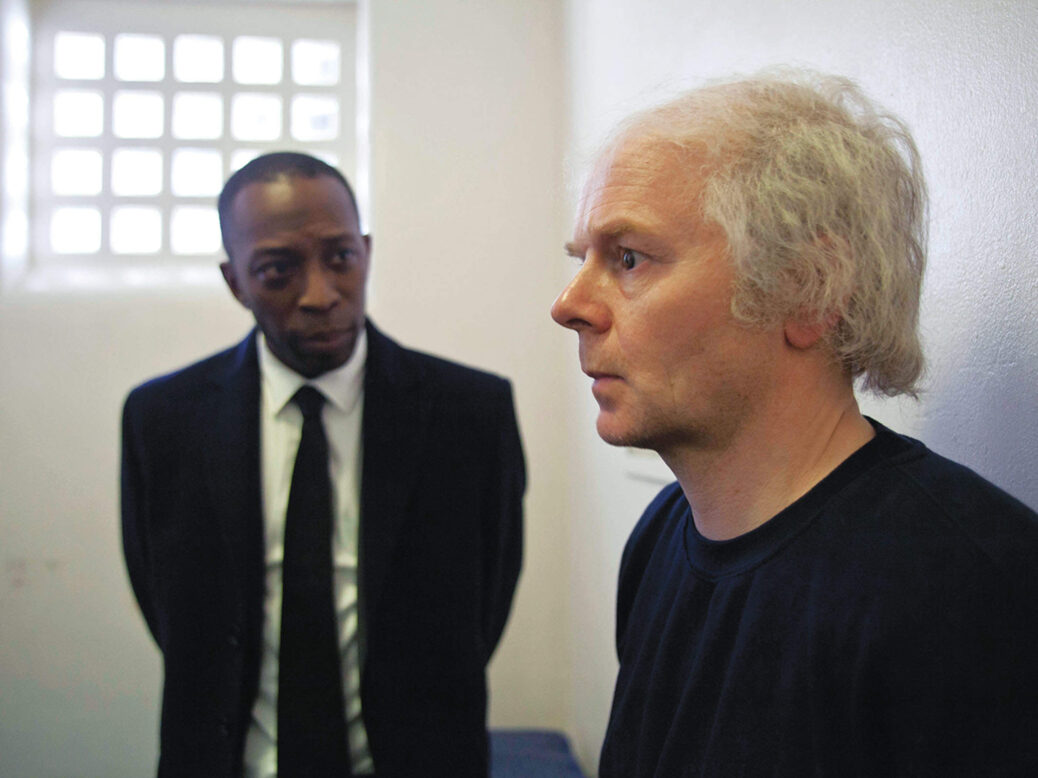
The Lost Honour of Christopher Jefferies
ITV
The Lost Honour of Christopher Jefferies (10 and 11 December, 9pm) began by carefully establishing the eccentricity of the retired Bristol schoolteacher whose life was so shamefully trashed by the press in the days following his wrongful arrest for the murder of his tenant Joanna Yeates in December 2010. What counts as eccentric in 21st-century Britain? I think we’re all agreed that Jefferies’s hairstyle, a swirling grey nimbus secured by vast quantities of Elnett (“Extra Hold”), made for a pretty funny sight.
But is it really so weird to live in a flat full of books, to listen to classical music, to sit on various do-gooding committees, to open letters with a paper knife? How unbelievably depressing. I suppose it is quite unusual, these days, to kneel by your bed to say your prayers. But which of us doesn’t occasionally whisper desperately to some higher power? I know that I do and I was brought up by scientists whose feelings for the Church of England were roughly akin to those of Emily Thornberry for the St George’s cross.
Such details – or, the close attention of the film’s director, Roger Michell, to such details – had me worried at first. The most important point about Jefferies, it seems to me, is not his oddness (when I interviewed him, he seemed no more or less odd than dozens of other men I’ve met) but his ordinariness: he stands for us all in the matter of what the newspapers can do to a person, should they happen to take against him.
Still, I soon calmed down. This was such creditable television, so careful and kind, that it was difficult to believe it was on ITV. Peter Morgan’s script was unsensational to the point of minimalism, Michell’s direction delicate without ever prettifying. Most fantastic of all was Jason Watkins’s turn as Jefferies, a triumph of close observation, emotional consistency and fathomless empathy. Best known at the moment for playing the BBC’s egregious director of strategic governance, Simon Harwood, in the comedy W1A, Watkins deserves every prize going.
We all know what happened to Jefferies, the vile lies that were told about him and the way his sense of injustice over this eventually bubbled up into activism (having appeared at the Leveson Inquiry only reluctantly, he continues to campaign against press intrusion). But this was no broad outline. Here was the man in full, his life replete with friendships (long-lasting, teasing) and abiding interests (wide-ranging, intellectual). Here, too, were his stoicism and good manners. Lost for words at the moment of his arrest, his anxiety revealed itself to us only in his fingers, which made starfish shapes, in and out, and in the rapid escalation of his schoolmasterly pedantry: when a copper asked him what he meant by “bluff”, he reeled off a long list of synonyms that ended, rather brilliantly, with the word “unvarnished”.
The unlikely humiliation of the police cells for a man who had never previously received so much as a parking ticket was neatly encapsulated when he chose pasta bake over chilli con carne for lunch – either way, mush that arrived at 10am in a plastic dish, as if for a baby – and, later on, his other-worldliness in a scene set backstage at the Leveson Inquiry, when he failed to recognise Steve Coogan (played by himself).
Back at his flat, he cleaned resignedly in his Marigolds, the police having turned the place over. As he laid out his shaving equipment, lining each item up as a boy would arrange his toy battleships, we understood that for him the comforts of home have to do, for whatever reason, with order and precision. It was a moment that made the chaos of unchecked “facts” and feverish innuendo into which he had unaccountably been sucked seem all the more painful and appalling. I suddenly found myself thinking of an earlier scene: hiding out with a loyal former pupil in order to avoid the press, Jefferies sat Zen-like in a straight-backed chair, a book called The Cultivation of Lilies in his hands. At the time, I had wondered, in a film whose props seemed always to be meaningful, about the title. Now it made perfect sense. No wonder Jefferies sought solace in fragrant plants: anything to overpower the stench.





